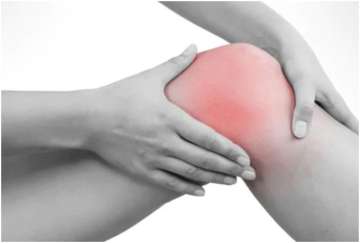Managing arthritis: Arthritis is a chronic condition that causes inflammation and pain in the joints. It can be a challenging condition to manage, but there are several strategies that can help to reduce pain and improve quality of life. While many suggest that using heat as well as ice can help relieve pain, they are unaware of when to use either of them.
Heat vs ice for arthritis:
Heat can ease pain and stiffness in joints and muscles when applied properly, a report in IANS states. The cold application, on the other hand, might help to reduce soreness and joint inflammation.
Likewise, when a joint is stiff or hurting, people should apply heat before exercising. And additionally, cold can reduce pain and may be helpful if a joint is irritated, especially if there is swelling post exercise.
Ways to manage arthritis pain
Exercise: Regular physical activity can help to reduce pain and stiffness in the joints, as well as improve overall physical function. It is important to find an exercise program that is safe and suitable for your individual needs and abilities.
Medications: Nonsteroidal anti-inflammatory drugs (NSAIDs) can help to reduce inflammation and pain. Other medications, such as disease-modifying antirheumatic drugs (DMARDs) and biologics, may be prescribed for more severe cases of arthritis. It is important to follow your doctor's recommendations for taking these medications and to report any side effects.
Heat and cold therapy: Applying heat or cold to the affected joints can help to reduce pain and stiffness. Heat therapy, such as using a heating pad or taking a warm bath, can help to relax muscles and improve blood flow. Cold therapy, such as using an ice pack or taking a cold shower, can help to numb pain and reduce swelling.
Massage: Massaging the affected joints can help to improve circulation and reduce muscle tension, which can in turn reduce pain and stiffness. Massage can be done by a professional therapist or by a trained family member or friend.
Assistive devices: Using assistive devices, such as canes, walkers, or handrails, can help to reduce strain on the joints and improve mobility. Orthopedic shoes or inserts may also be helpful in reducing pressure on the joints.
Acupuncture: Acupuncture is a form of traditional Chinese medicine that involves the insertion of thin needles into specific points on the body. It is believed to help reduce pain and improve overall function in people with arthritis.
It is important to work with your healthcare team to find the best strategies for managing your arthritis pain. By implementing a combination of these approaches, you can improve your ability to live an active and fulfilling life despite the challenges of arthritis.
Disclaimer: The article is for educational and informational purposes only. It does not constitute as medical advice. Please consult a doctor before starting any treatment.
